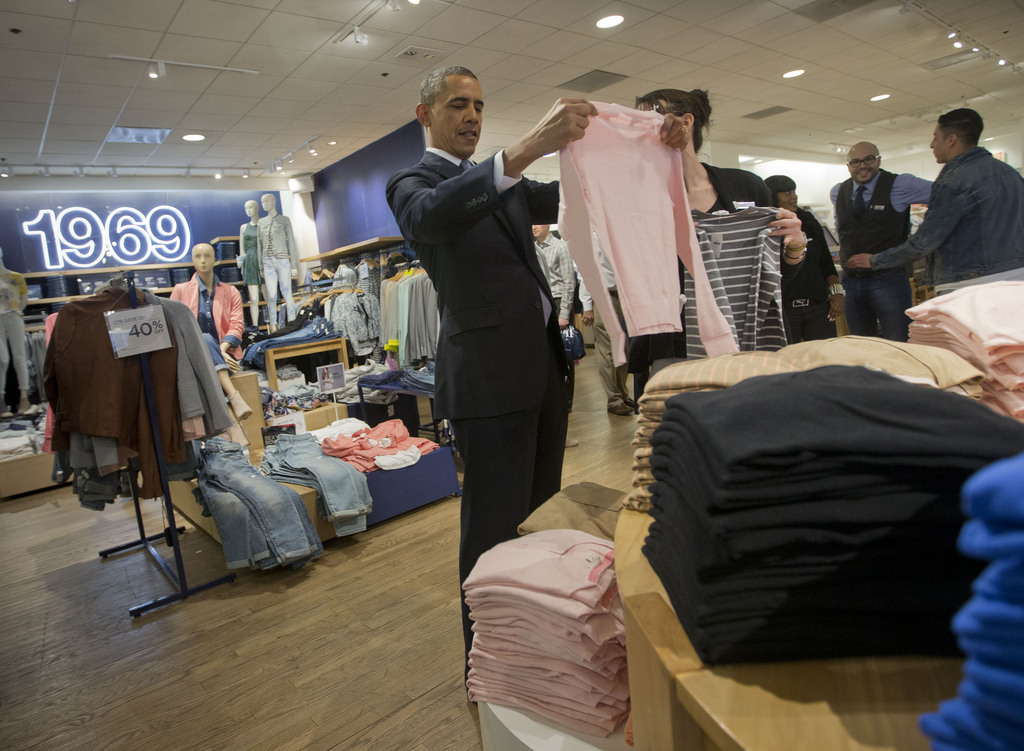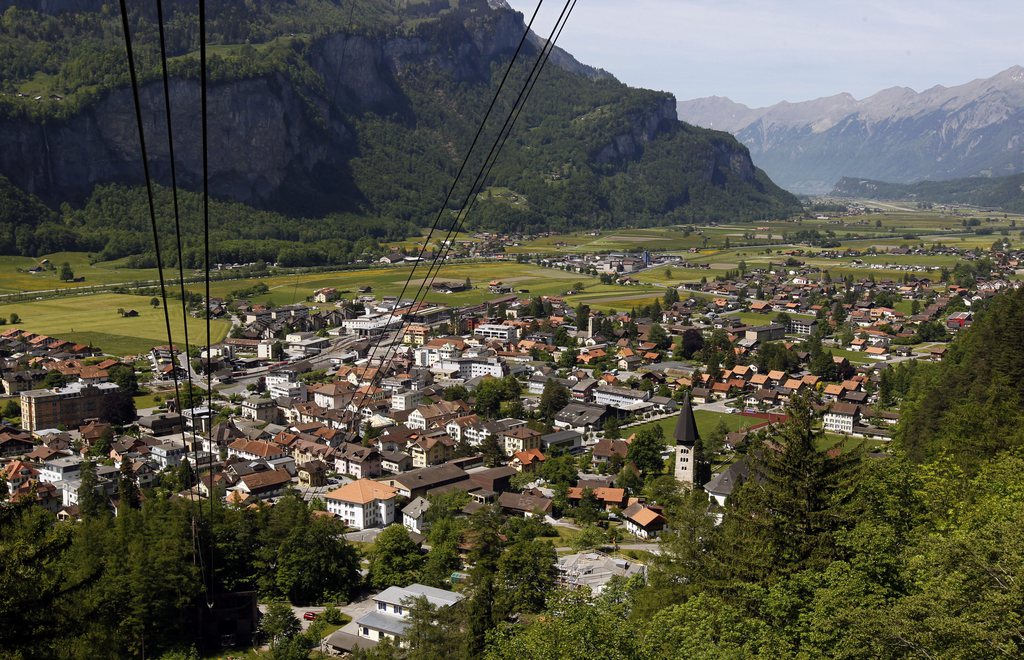Swiss say no to world’s highest minimum wage

Voters in Switzerland have rejected plans for a nationwide minimum wage. At CHF22 ($25) an hour, the limit would have been the highest in the world.
In Sunday’s nationwide vote 76.3% of voters were against the initiative. Voter turnout was 55.5%.
Under the initiative, someone on a minimum wage in Switzerland would have earned double the rate in Britain or the United States. Although high, the Swiss limit was set against the country’s high cost of living, where the median hourly wage is around CHF33.
Luxembourg currently has the top ‘real’ minimum wage at $10.70 an hour, when adjusted for purchasing power, and the Swiss wage would have been comfortably ahead of that at $14. (See infobox)
The country’s biggest trade union umbrella group had pushed the initiative to a vote, arguing a nationwide limit would entitle everyone to a “decent rate of pay”. In the grander scheme of things, they said the change would help reduce poverty and fight wage dumping, where firms bring in workers from abroad but pay them less.
The Trade Union Federation had the backing of the Social Democrats and the Greens. But opponents – most political parties, the government and the business community – argued it would be tantamount to state interference in a free market economy and could prove counterproductive, forcing firms to cut costs by killing some low paid jobs.
PLACEHOLDEROnce the vote outcome was clear, unions vowed to continue to fight against low pay. The Trade Union Federation chief economist, Daniel Lampart, conceded that a large majority had come out against the minimum wage being enshrined in law. But that does not mean that the Swiss back wages that people are unable to live on, he said.
“People want collective bargaining agreements to guarantee good salaries,” he noted.
Other union groups responded saying they had “succeeded in launching a major debate on salaries” and that the question of salary protection would now remain on the political agenda.
The Greens said they would focus on change at a cantonal level and regularisation of collective agreements. “The initiative campaign showed that a very high number of people are not party to a collective agreement.”
Economics Minister Johann Schneider-Ammann, however, welcomed the result, saying the alternative would have meant job losses. “Work is the best antidote to poverty,” he said.
The Swiss Business Federation, economiesuisse, described the rejection of the initiative as a clear signal that the electorate wouldn’t tolerate government intervention in a free market economy.
Its president, Heinz Karrer, said: “In recent weeks we were able to show that the initiative hurts low-paid workers in particular.” He added that the issue of minimum wages would be addressed in collective agreements in some regions and industries.
The strongest opposition was felt in canton Appenzell Inner-Rhodes where it was rejected by 87.9% of voters. It was even turned down in Neuchâtel and Jura, two cantons where similar salary moves are being rolled out.
The Organisation for Economic Co-operation and Development calculates the real minimum wages in 2013 among 26 member countries, adjusting them for purchasing power parity.
The top five rates were Luxembourg ($10.70), followed by France ($10.60), Australia ($10.20), Belgium ($10) and the Netherlands ($9.5).
When adjusted by currency rates, Australia came top with $15.20, followed by Luxembourg, France, Belgium and Ireland.
(Source: OECD 2014)
Too high?
The minimum wage initiative was the third time in just under two years that Swiss voters have been called upon to decide how much – or how little – jobs should be worth. Last year voters approved a crackdown on pay packages for ‘fat cat’ top managers but rejected a move to cap executive salaries at 12 times that of the lowest paid employees.
The CHF22 an hour limit would have fallen in the current upward range for low-paying jobs, which account for about 10.5% of all jobs.
The Swiss Employers’ Association said in opposing a minimum wage they were not defending a policy of low pay rates, but believed pay policy should be “realistic and flexible”.
The rate proposed was too high, they said, even when the cost of living and median wage was taken into account.
They had warned a high, uniform rate could hurt low earners. Instead of rates being negotiated by social partners through collective bargaining agreements on the basis of local conditions and economics, companies would have to cut jobs to meet higher costs.
Fundamentally, they were against the idea of a nationwide minimum wage being set by the government “contrary to the principle of pay rates being set in accordance with market conditions”, and “incompatible with a liberal economic system”, Alexandre Plassard told swissinfo.ch ahead of the vote.
Nationwide minimum wage
Yes: 23.7% No: 76.3%
Gripen fighter jets
Yes: 46.6% No: 53.4%
Ban on convicted paedophiles
Yes: 63.5% No: 36.5%
Boost for family doctors
Yes: 88.0% No: 12.0%
Turnout: 55.5%
A limited number of voters, notably the Swiss Abroad, were able to cast their vote online as part of an ongoing trial with e-voting. About 16.6% of them made use of it.
Ironing out differences
The cost of living varies greatly from region to region, and the collective bargaining in place takes account of real conditions in different regions and industries, the employers association has said.
Unions however hoped the initiative would be a tool to put an end to pressure on pay rates in areas and economic sectors that rely on imported workers from other countries.
Switzerland is currently grappling with how to implement a rightwing move approved by voters in February to curb immigration from European Union countries.
Unions believed their initiative would have been “an effective tool” against firms wage dumping, because it would have required the government and cantons to promote collective agreements specifying the minimum rates of pay and to ensure its implementation, trade union spokesman Ewald Ackermann told swissinfo.ch.
It would have also covered those people who fall through the net. At present, only 49% of employees work under a collective agreement in Switzerland and only 80% of those have a collective agreement that sets minimum wage limits.
Bern: Nuclear power
63.3% of voters rejected a move to shut the Mühleberg nuclear power plant near Bern ahead of its planned closure in 2019.
Vaud: Heritage
A counter proposal to reduce the scale of the zones for building in the Lake Geneva region and to provide financial support to winegrowers to help maintain their terraces in Lavaux was approved by 68.5% of voters.
Neuchâtel: Wind power
Voters backed by 65% plans for five zones for wind farms comprising a total of 59 turbines, equal to 20% of the energy needs in canton Neuchâtel.
Elsewhere…
Across the EU, 21 of the 28 member states have a minimum wage, with Germany the latest to decide to bring in a limit in 2015.
In the weeks leading up to the Swiss vote, the US was tackling its own national debate on the issue, as Republicans blocked a Democrat bill calling for the federal limit to be raised to $10.10.
Simultaneously Seattle announced plans to introduce a $15 an hour limit, which could make it what is believed to be the highest government fixed rate in a major city – now the Swiss initiative has failed.
The national median wage is an median of all pay rates in the country: 50% of salaries are above this figure and 50% are below it.
In 2010, taken as the reference year for the setting of the legal minimum wage at CHF4,000 a month, the gross median wage in Switzerland was CHF5,979 per month; breaking this figure down further, it was CHF5,221 for women and CHF6,397 for men.
The median wage was consistently higher in three regions – Zurich (CHF6,560), northwestern Switzerland (CHF6,437) and the Lake Geneva region (CHF6,422) – while it was considerably lower in Ticino (CHF5,358).
According to an internationally accepted definition, low-paying jobs are those earning less than two-thirds of the gross median wage. In 2010, low pay rates in Switzerland were those under CHF3,986 gross monthly for 40 hours a week.
Overall there were about 275,000 jobs in the low-paying category, or 10.5% of all jobs. In terms of economic sector, the largest category of jobs with an hourly wage below CHF22 was to be found in personal services such as hairdressing, cleaning and catering (51%).
(Source: Federal Statistics Office and SECO)

In compliance with the JTI standards
More: SWI swissinfo.ch certified by the Journalism Trust Initiative





You can find an overview of ongoing debates with our journalists here. Please join us!
If you want to start a conversation about a topic raised in this article or want to report factual errors, email us at english@swissinfo.ch.